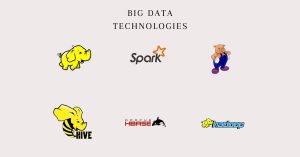Anubinda Oct 19, 2020 No Comments
Big data is a field that deals with data sets that are too large or too complex to be dealt with data-processing application software. Only experienced people work on Big Data is one of the biggest fallacies. Whether it is an old technology like mainframes or something latest as Big Data, there is no such domain or industry where freshers are not required. In this blog, we are going to focus on How Big Data is going to help a fresher in the long run as a career.
In 2006, Clive Humby coined the phrase, “Data is the new oil”. He further explained that like oil, data is extremely valuable, however, data must be broken down and analyzed for it to have its business value.
Each company generates a huge amount of data every day. This comes from every possible domain we could think of. A large set of companies are left with a huge amount of data with absolutely no idea on how to proceed with it. A company’s benefit arises from the data that they collect. They make proper use of it for managing several other sub-domains within it as IT, Retail, Banking, Pharma, Hospitality, Healthcare, FMCG, Media, Sports, etc. A minimal percentage of employees were able to do it, however, the results were not quite insightful in order to present a bigger picture. Industry experts mention that technology and education have created an environment to trigger analytical thinking abilities. Companies are now making decisions based on the insights received. This came as a surprise to a lot of companies as they saw significant growth in figures just by proper analysis of data, hence creating a large demand for Big Data analysts.
While having a pre-requisite skill helps in securing a job and a higher package, it always depends on what the job description demands. Recruiters consider basic pre-requisite skills of Hadoop, programming knowledge with basic Java as relevant skills. Technical skills like have always come a long way when it comes to getting a job in Big Data along with knowledge about tools like:
Diversified roles in Big Data demand different skill set but there are few common technologies which certainly gives an edge while applying for big data jobs. The ones which are the most important among them are Hadoop, Apache Spark, Pig, Hive, HBase, and Yarn. Gaining expertise in these technologies will help in understanding the specific tool. However, having a hands-on practice about the tool will raise the bar for the competitors and help in getting closer to Hadoop interview calls.
A certification helps interviewers get an overall idea about the tools, specifics, and applications required for a fresh Big Data aspirant. Hence, a certification answers more than half of the questions of the interviewers. We, at Ivy Professional School, believe that education is much above than certification. We ensure that a fresher enhances himself/herself so well that the certification treats as an added advantage to their exemplary skills.

When it comes to Big Data especially, our experience and techniques have been unmatched. Being an official learning partner of Genpact, HSBC, eBay, PayPal, Cognizant, Capgemini, etc, Ivy has been pioneering in certifying students in Big Data technologies. Our vision aims at involving our students in the subject so that they start thinking analytically and generate a logical approach. The Big Data Certification by Ivy Professional School will not only look into the theoretical aspects but also ensure that the candidate is well versed with the hands-on projects. We make them ready for real-time projects in various MNCs by providing real-world problem scenarios as a part of academic projects. At Ivy, we are confident this will make the students practice as much as possible and help them in getting to know the subject better. Here are some of the projects that Ivy specializes its students with:

Big Data is not one person’s job, thus an organization would definitely have to divide the whole process among various specialists in Big Data in order to get the work done in an effective and timely manner. One who specializes in the development might require help in monitoring the process as the admin.
The salary of a Big Data engineer is growing exponentially. Especially in a country like India where data is abundantly available, it is one of the most exciting jobs as it requires continuous analysis and data management. If you are such an enthusiast who wants to know about how to make a career in big data or looking to switch your domain, we are here to help you. Ivy Professional School aims at providing in-depth knowledge about Big Data to whether it is a fresher looking for a career transition or someone who wants to up-skill. You can contact us via email or at +91-7676882222.
Leave a Reply